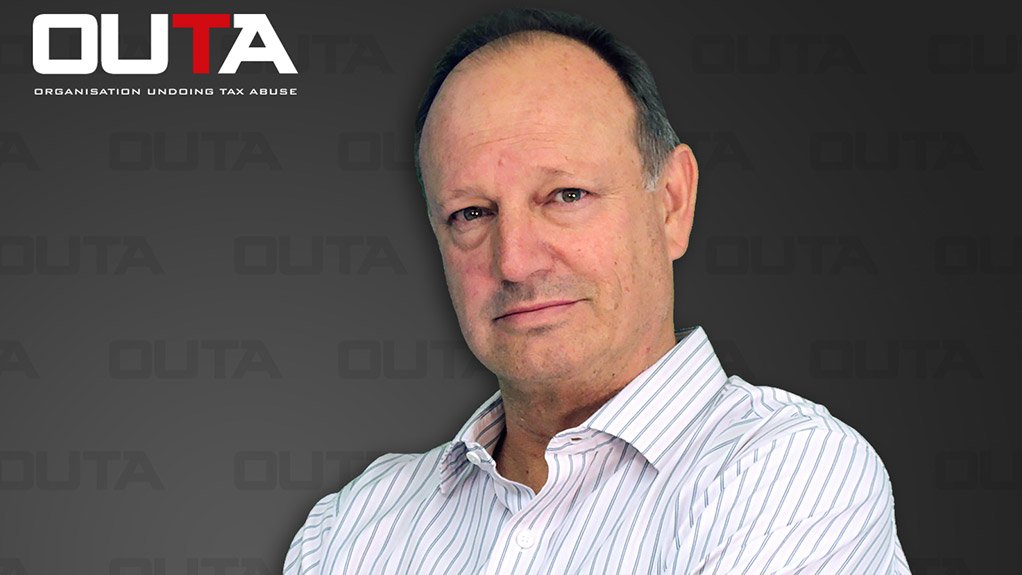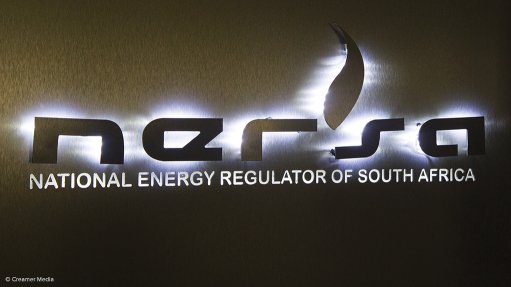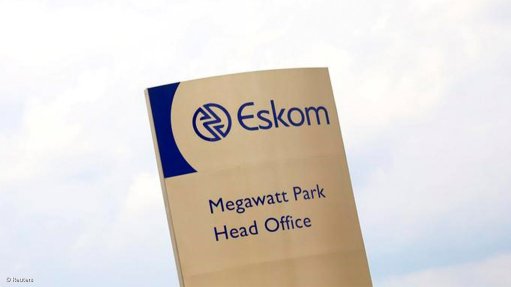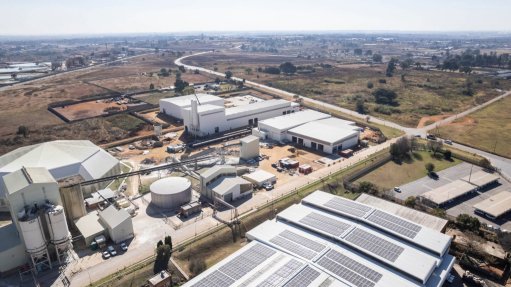Outa questions Gazprombank, nuclear procurement announcements
This week’s announcements of government’s plan to pursue the procurement process for 2 500 MW of new nuclear capacity, along with Cabinet’s decision to endorse a R3.7-billion investment deal between PetroSA and Gazprombank to resuscitate the gas-to-liquids refinery in Mossel Bay, “appear to have been taken in haste and lack sufficient transparency, clarity and rationality”, the Organisation Undoing Tax Abuse (Outa) says in a statement.
“Both deals smack of a government that is desperate to secure dubious contracts ahead of the 2024 elections, since there is a strong possibility that those currently in positions of power may no longer be around to approve deals of this nature,” posits Outa CEO Wayne Duvenage.
“Despite PetroSA’s bid evaluation committee and its own board warning against awarding the bid to Gazprombank, with PetroSA’s lawyers even suggesting starting the tender process anew, the State-owned entity ignored the advice and awarded the tender to the Russian entity,” Outa states.
While Gazprombank is under sanctions because of the situation with Ukraine, according to PetroSA, the chances of South Africa being hit by secondary sanctions are minimal.
However, Outa avers that a partnership between PetroSA and Gazprombank could open South Africa up to the threat of secondary sanctions from the US or some reputational damage.
“Since the South African Reserve Bank added secondary sanctions to its list of major financial risks facing South Africa, one would expect government to proceed with caution, especially against the background of the Agoa trade deal that has already come under the spotlight because of the ANC government’s close relationship with Russia,” Duvenage says.
PetroSA closed its gas-to-liquid fuel refinery in 2020 after it ran out of feedstock. The refinery can produce 46 000 bl/d of fuel.
PetroSA’s current purpose and the bulk of its revenue exists to buy imported diesel and sell this on to State-owned utility Eskom, profiteering from taxes and fees built into the retail price of diesel, Outa explains.
It adds that, owing to Eskom’s significantly higher diesel use over the past year, PetroSA’s turnover increased from R12-billion last year to an estimated R20-billion this year.
Outa says it is concerned that an investment and equity shareholding by Gazprombank into a South African State-owned asset will enable a foreign country’s State-owned company to profit from South African citizens fuel tax spending, as well as become the beneficiaries of gas sales supplied by them to South Africa.
”We want to know what other potential options have been excluded from this transaction due to irrational conditions built into the tender process, which is not being publicised due to PetroSA’s lack of transparency on this transaction.”
Electricity Minister Dr Kgosientsho Ramokgopa has also announced that government will publish a request for proposals (RFP) for 2 500 MW of new nuclear capacity by March 2024.
Duvenage questions the timing and transparency of this announcement, and why the National Energy Regulator of South Africa (Nersa) has not officially announced their concurrence and approval of this decision.
Ramokgopa says Nersa has given the go-ahead for this procurement process to proceed as far back as September, however, Outa says that no official announcement was made in this regard at the time. According to Ramokgopa, government will now proceed with the gazetting of the RFP.
“Nersa’s concurrence had been conditional on the Department of Mineral Resources and Energy meeting several suspensive conditions, including establishing, through a demand and generation profile analysis, the rationality of adding 2 500 MW of nuclear. Nersa also wanted confirmation that engineering, procurement and construction contract principles would be used during the procurement phase.
“They claim that Nersa is satisfied that the conditions for this nuclear decision have been met, but they don’t give us any detail,” Outa says.
Duvenage warns that the decision to proceed with nuclear was made based on the prevailing Integrated Resource Plan (IRP) of 2019, when the country is still awaiting the promised release of the updated IRP 2023.
“The past IRP makes no specific mention of nuclear, but only stipulates that any nuclear build programme be implemented at a pace and scale that the country can afford. It would appear to us that the 2023 IRP, which is imminent following Cabinet’s recent approval, may now contain the supposed need for 2 500 MW of nuclear energy, yet this IRP will still need to undergo public comment and scrutiny,” he explains.
Outa also disputes the claim that the levelized cost of this nuclear procurement will be at around R0.60 per kWh, as was stated in recent announcements by government.
“This is absurd, to say the least. International financial advisory firms like Lazard indicate the cost of new nuclear energy to be well above R2/kWh, with others saying it will be more likely above R3.50/kWh in South Africa’s case, after taking local conditions, construction time and other factors into account,” Outa avers.
Ramokgopa has admitted that no new nuclear could be built before the mid-2030s, implying that nuclear technology could play no immediate role in ending the country’s prevailing loadshedding crisis, Outa adds.
Duvenage says the proposed new nuclear deal as well as the PetroSA and Gazprombank deal requires further scrutiny.
“We find it unacceptable for government to decide on projects on behalf of its people, without being completely transparent about the costs and the long-term implications for the country and future generations. If indeed these decisions were not taken in the best interest of South Africa, Outa will definitely consider applying the rule of law to intervene.”
Article Enquiry
Email Article
Save Article
Feedback
To advertise email advertising@creamermedia.co.za or click here
Comments
Announcements
What's On
Subscribe to improve your user experience...
Option 1 (equivalent of R125 a month):
Receive a weekly copy of Creamer Media's Engineering News & Mining Weekly magazine
(print copy for those in South Africa and e-magazine for those outside of South Africa)
Receive daily email newsletters
Access to full search results
Access archive of magazine back copies
Access to Projects in Progress
Access to ONE Research Report of your choice in PDF format
Option 2 (equivalent of R375 a month):
All benefits from Option 1
PLUS
Access to Creamer Media's Research Channel Africa for ALL Research Reports, in PDF format, on various industrial and mining sectors
including Electricity; Water; Energy Transition; Hydrogen; Roads, Rail and Ports; Coal; Gold; Platinum; Battery Metals; etc.
Already a subscriber?
Forgotten your password?
Receive weekly copy of Creamer Media's Engineering News & Mining Weekly magazine (print copy for those in South Africa and e-magazine for those outside of South Africa)
➕
Recieve daily email newsletters
➕
Access to full search results
➕
Access archive of magazine back copies
➕
Access to Projects in Progress
➕
Access to ONE Research Report of your choice in PDF format
RESEARCH CHANNEL AFRICA
R4500 (equivalent of R375 a month)
SUBSCRIBEAll benefits from Option 1
➕
Access to Creamer Media's Research Channel Africa for ALL Research Reports on various industrial and mining sectors, in PDF format, including on:
Electricity
➕
Water
➕
Energy Transition
➕
Hydrogen
➕
Roads, Rail and Ports
➕
Coal
➕
Gold
➕
Platinum
➕
Battery Metals
➕
etc.
Receive all benefits from Option 1 or Option 2 delivered to numerous people at your company
➕
Multiple User names and Passwords for simultaneous log-ins
➕
Intranet integration access to all in your organisation





















